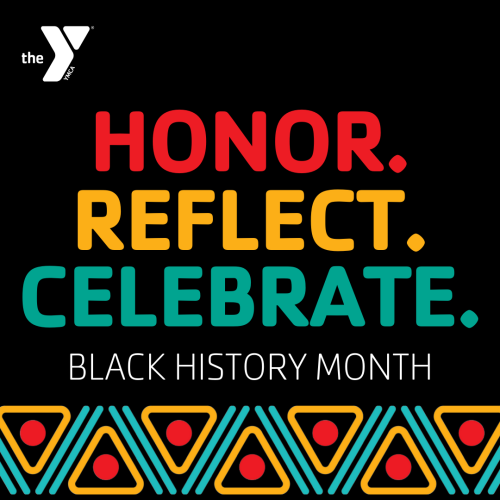Black History at The Y

Did you know that Black History Month has roots associated with the YMCA? The history of the YMCA – like the history of the United States – is a story of incremental progress toward greater inclusion, equity, representation and access for all. In celebrating Black History Month, we are honoring the lives of Black leaders who helped move the Y – and America – forward through their efforts.
Anthony Bowen
Anthony Bowen, a formerly enslaved man and the first Black American to become a clerk in the U.S. Patent Office, founded the first YMCA for the Black community in Washington, D.C. This Y was formed in 1853, just eight years before the start of the American Civil War. Additional Black Y's and college chapters were established throughout the country in the decades following Bowen's trailblazing achievement, with membership reaching 28,000 by the mid-1920s.
William Hunton
William Hunton, the son of a freed enslaved family from Canada, began working with the Y in 1888 as the first employed YMCA secretary at a “Colored YMCA” in Norfolk, Virginia. Hunton worked among the soldiers in the Army camps during the Spanish-American War and in developing Student YMCAs on Black campuses throughout the South. He helped communities meet philanthropist Julius Rosenwald’s challenge grant to build YMCAs for Black communities, as well as helping recruit and train the staff and volunteers to lead those associations.
Carter Woodson
In 1915, at the Wabash Avenue YMCA in Chicago, Carter Woodson organized the Association for the Study of Negro Life and History, which researched and celebrated the achievements of Black Americans. This led to him starting Negro History Week, the precursor to Black History Month.
Foundation of the Negro Baseball Leagues
In 1920, a group of African American baseball team owners led by Andrew "Rube" Foster met at the Paseo YMCA here in Kansas City and formed the Negro National League, the first successful organized black baseball league. The building is now home to the Buck O'Neil Education and Research Center, hosted by the Negro Leagues Baseball Museum. The museum is free to the public in February to celebrate Black History Month.
Madam C.J. Walker
An entrepreneur, philanthropist and social activist, Madam C.J. Walker was one of the first self-made female American millionaires. She escaped poverty and built a company selling hair care products, now Madam C.J. Walker Beauty Culture, which also gave her sales agents an income of their own. Walker was a philanthropic supporter of the YMCA in Indianapolis along with participating in and financially supporting the NAACP’s anti-lynching movement, among many other causes.
Jackie Robinson
On April 15, 1947, Jackie Robinson broke the color barrier and became the first Black Major League Baseball player when he started at first base for the Brooklyn Dodgers. The same year, he also began volunteering as a boys coach at the Harlem YMCA with fellow coach and teammate Roy Campanella. In 1973, the Southeast YMCA in San Diego, California, changed its name to the Jackie Robinson Family YMCA to honor Robinson's legacy.
Leo B. Marsh
In 1954, Dr. Leo B. Marsh became the first Black president of the Association of YMCA Secretaries. In 1971, Marsh brought the Black Achievers program, created by Quentin R. Mease at the South Central YMCA of Houston, to the Harlem YMCA. With the help of volunteer adult mentors, the Achievers program helps youth of color succeed in school and develop a positive sense of self. Marsh also served on the National Board of the YMCA from 1948 to 1970.
Jesse Alexander
After starting his YMCA career as a youth outreach worker, in 1969, Jesse Alexander joined the National Council of YMCAs where he helped organize the National Conference of Black and Non-White Laymen and Staff, which dealt with supporting efforts to overcome racism in the YMCA and ensuring YMCA organizations existed where communities of color wanted them.
Violet P. Henry
After holding various executive leadership roles in the Newark and Chicago YMCAs, in 1976, Violet P. Henry became the first woman to be named to a top management position at the Y's national office. She provided leadership for numerous national and international commissions and committees that worked for the rights of women and people of color.
First Lady Announces 'Let's Move' at the Y
In 2010, as First Lady, Michelle Obama launched the pillars of her “Let’s Move Outside” campaign against childhood obesity at the Alexandria YMCA, a branch of the YMCA of Metropolitan Washington. This helped position the Y as an important ally in preventing chronic disease throughout the nation.
Kevin Washington
In 2015, Kevin Washington became the first African American, and the first person of color, to serve as CEO of the YMCA of the USA. Besides reimagining a new service delivery system across the Y movement, Washington was a leading national voice for relief from federal government for nonprofits devastated by the COVID-19 pandemic. He spearheaded the highly successful #Relief4Charities effort, put Y-USA on a path to become an anti-racist, multicultural organization and engaged young people as changemakers in their communities.
Visit the YMCA Archives to learn more about the history of Black leadership in the YMCA.
